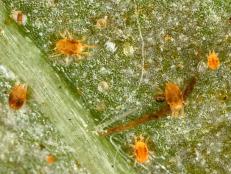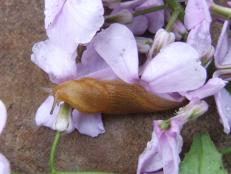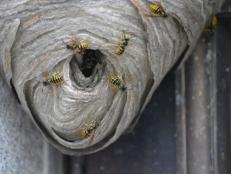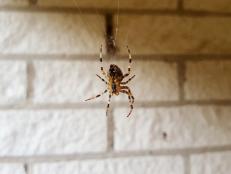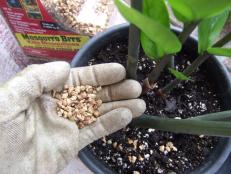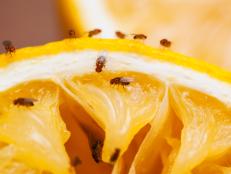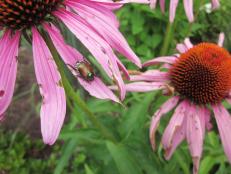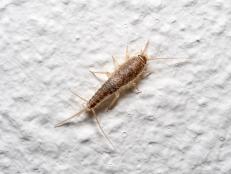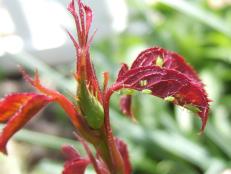How to Get Rid of Skunks in Your Garden
Learn how to get rid of skunks while protecting yourself from their best defense.

Of all the critters I do not want to see in my garden, the one that takes the prize for "Most Un-Wanted" is the common skunk. Sure, from a distance they're kind of cute. But not only are these nocturnal mammals capable of stinking up the joint, they can also make off with your best produce under cover of night. And scaring them away with a broom is not a great option unless you want to end up soaking in tomato juice all night.
Luckily, there are some things you can do to get rid of Pepe Le Pew:
1. Remove Food Sources
Skunks are skittish, shy creatures, so if one finds its way into your yard, chances are good it's got a compelling reason to be there: i.e. food. Is your trash container securely covered? Is an open compost pile, pet food or a bird feeder attracting the skunks? Fruits and veggies in your garden can act as skunk bait, so try surrounding your crops with a low fence. The skunks won't be able to climb over, but a motivated critter can dig under a fence, so consider burying several inches of fence or sprinkling cayenne or chili powder around the fence perimeter to act as a deterrent.
2. Install Lights
Skunks are night-dwelling animals, and don't like bright light. A motion-activated flood lamp will often startle them off.
3. Use Skunk Repellents
It may seem ironic, but skunks hate certain odors (as if they have room to judge). Citrus, ammonia, mothballs and predator urine (dog, coyote, etc) are three smells that can scare off skunks. If you use mothballs or ammonia-soaked cotton balls, be sure to keep them far away from children.
4. Relocate Them
If you can find where the skunk is living, you can fill up its hole with dirt. Just be careful in spring, when the skunk may have babies in her den! And if you're really desperate, you may be able to trap the skunk live, then remove it to another natural area. Too skittish to go head-to-head with a persistent skunk? Try the phone book. Search under pest control or wildlife control online or in the yellow pages. Sometimes, it's just best to leave delicate jobs to the experts.






